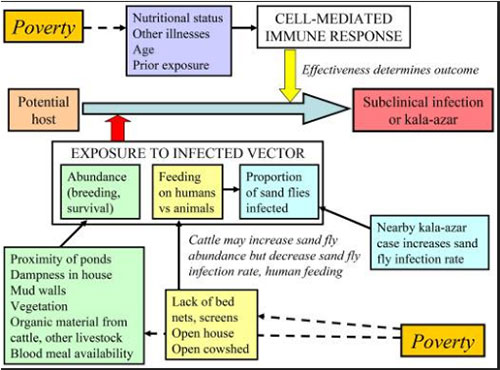KALA- AZAR: Important Topics for UPSC Exams
KALA- AZAR: Important Topics for UPSC Exams
What is Kala-azar?
-
Kala-azar also called black fever or dumdum fever is a fatal parasitic disease of viscera (the internal organs particularly the bones, liver, spleen etc.) caused by the infection due to the parasitic agent called Leishmania Donovani.
How is it transmitted?
- It is transmitted by Sand Fly bites. Hence it is common in families living in close proximity to livestock or in humid condition. The South bank of Ganga River is the global epicentre for Kala-Azar.
What are its Symptoms?
- High fever, substantial weight loss, enlargement of liver, spleen, loss of appetite, suppression of bone marrow etc.

Recent Status
- WHO has categorised it as NTD (Neglected Tropical Disease) which affects poorest populations in tropical and subtropical regions especially in developing countries of the world.
Initiatives were taken by Government of India
WHO has set the target for GOI to eliminate it by 2017. A centrally sponsored kala-azar control programme had been launched for endemic states in the year 1990-91. The government is working together with BMGF, WHO, NCDC, RMRI to eliminate Kala-azar from India. On a monthly basis, the progress is being monitored by PMO and Ministry of health any family welfare.
- National roadmap for Kala-azar has been circulated in all states.
- Treatment of the patient with single day single dose AmBisome injection has improved treatment compliance.
- Regular supply of diagnostic kit.
- Rs. 300 being given to ASHA worker or health volunteer to bring cases
suspected with Kala-azar and ensures their full treatment.

